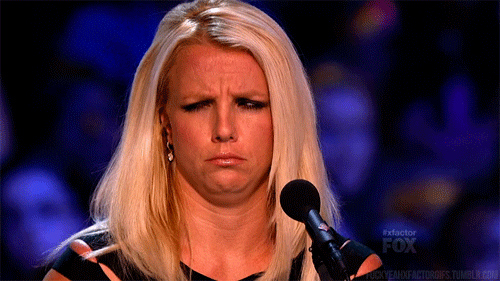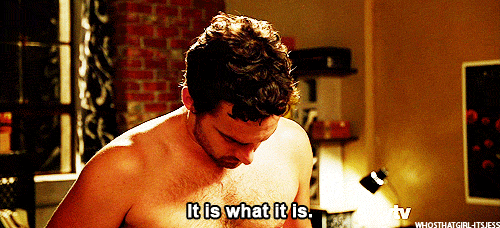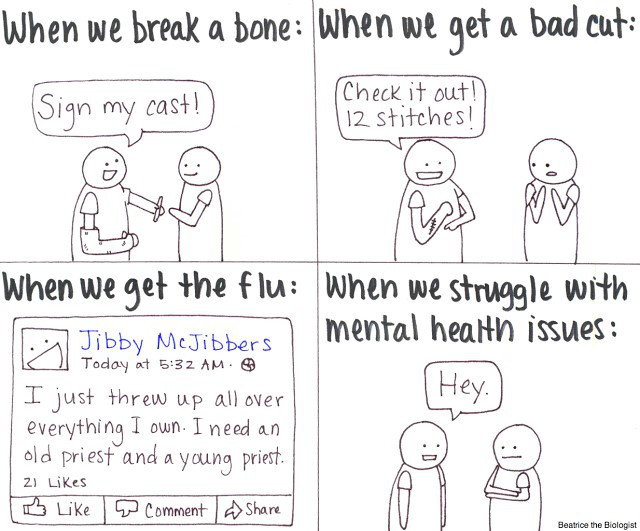
Health expert, I am not. Am I even someone you should be taking advice from when it comes to diet, exercise, and health? Probably not. Throughout my teens and early to mid twenties I didn’t give much thought to health and exercise. I went meat-free when I was 18, but mostly for ethical reasons and because frankly I don’t overly enjoy the taste of meat and found myself simply making selections that didn’t include it. Were these selections always the healthiest? Of course not!
I went to an undergraduate university with a bit of an image obsession. It seemed like everywhere I turned I was surrounded by tall, thin, gorgeous women. I swear the irony is not lost on me that I actually managed to meet the man of my dreams in this setting. This image issue did create a pseudo unhealthy mindset for me during these years. I would try to eat in moderation and would occasionally visit our campus’ rec center, but certainly nothing to see consistent results. My saving grace in college was definitely our MASSIVE campus and the fact that I walked everywhere. I was never as thin as I’d like but I was never truly concerned about my weight.
Once college was over, I started to see the pounds pack on. I’d make some effort to restrict calories and attempt to find a fitness program that would stick but nothing worked. I never slipped into a true weight danger zone though so I didn’t allow it to enter the forefront of my mind. When we moved to Florida in 2012 I dropped a ton of weight. Like back down to my teenage weight. I thought I had found the seemingly magical solution… but I hadn’t actually done anything. And then I got married.
I love my husband with all my heart. We have so much fun together! Unfortunately Matt is also a lover of food and not huge on the fitness. We’ve enabled ourselves to get to a size that I’m not all together comfortable with. This is the first time in my life that I truly feel self conscious about my weight. I don’t like my picture taken, and I am certainly not into the selfie.
I’ve realized it’s time to get serious and really start to DO something about my weight. But I didn’t even know where to start. I need to completely reeducate myself on health. Counting Calories worked to an extent but I wouldn’t stick with it. I needed to figure out more about what I was putting into my body to know what were the good, better, and best options.
My journey started when I stumbled across ariellesays on Instagram. Arielle has lost 100+ pounds and has used social media to track her journey. I do not have that much weight to lose by any means, but I was still inspired by her story. She has a great FAQ section on her blog that started me down the right path. She recommends checking out the book Salt, Sugar, Fat by Michael Moss and to watch the documentary Fed Up (it’s on Netflix). Y’all, Salt, Sugar, Fat changed my life. I had no idea Sugar was such an issue until that book. That may sounds silly to some, but it’s true! I’ve never thought to look for sugar in the way that I do now.
Fed Up is also amazing. I got Matt to watch it and he’s all on board now. The health revolution has begun (slowly but surely) in our home!
In Fed Up, the documentary interviews Gary Taubes, author of Why We Get Fat and Good Calories, Bad Calories. I found Taubes interview interesting, so I checked Why We Get Fat out from my local library. I didn’t post on Monday because I had just finished the book and wanted some time to digest, process, and discuss with Matt. Here are my two cents:
Why We Get Fat Takes it Too Far
Spoiler Alert: Taubes’ hypothesis is that the western diet is filled with too many carbohydrates. It are these carbs, particularly the processed carbs of flours, sugars, and beer that are making us fat. Sounds reasonable enough so far, right? This is what Taubes hints at during Fed Up as well.
However, Taubes goes on to argue that ALL carbs are bad for us. Fruits, vegetables, and starches all can be making us fat. According to Taubes, you can swap the Taco Bell for apples and still pack on the pounds. That had my head scratching…
His Book Seems Like Sound Science on the Outside
Taubes spends about 3/4 of the book citing articles and scientific reports to back up his claims that the carbs we eat are making us fat. Given the sheer volume of reports, and anthropological surveys, it seems hard to argue against his logic… or so it seems. Taubes constantly criticizes the notion of Calories In vs Calories Out as a sound health tool stating “it’s too simple.” However, when he finally launches in to why exactly he thinks all carbs are bad, he often uses the phrase “it’s that easy.”

So logic is allowed to be simple, as long as it’s yours?
He also uses some present-day hunter / gatherer tribes to back up his arguments. He claims that very few of these populations consume many carbs and have no obesity, cancers, or other metabolic diseases in their populations. These hunter / gatherers are living the closest to our ancestors as possible and therefore, according to him, can be used as direct replacements to prove that this is how humans are meant to eat.
My BA and MA are in Anthropology and this just doesn’t seem like sound science to me. These populations are their own people, not time capsules of past societies (Cultural Anthropology 101). He also doesn’t discuss the diseases of these population or their life expectancy. I have no idea if by cutting out carbs I’m not getting cancer, but I’m dying at 50 anyway!
He Never Really Tells You What to Do Next:
Full disclosure on this one: I listened to this book in an audio book format and towards the end he does reference an appendix that I did not have. If I were a betting man I would assume some of my confusion here is cleared up in the appendix, however, I felt very lost at the end of Why We Get Fat. Okay, so I’m no longer suppose to eat Carbs. Got it. Fat seems cool, so does protein. But only to an extent. Taubes has an entire section warning people on the dangers of ingesting too much protein into the diet. WWGF just left me wondering what the heck I was suppose to eat at the end.
Vegetarians: Beware!
As I’m sure you’ve seen coming, Taubes does not speak very highly of the vegetarian lifestyle. He encourages copious consumption of meat as the solution to slimming down. He does say that you can eat vegetarian and cut the carbs but, again, he gives no examples of how to do it. The thing that made me craziest is the lack of awareness of the plethora of reasons people go meat-free. It’s not necessarily all about eating healthy. The process of producing meat has an enormous impact on our planet. Giving up meat is one of the fastest way to drastically reduce an individual’s carbon footprint. The mind boggling thing is that Taubes actually acknowledges this fact at the very beginning of his book. And then basically says that while this fact is true, it’s not part of his thesis and therefore he will pretend that it’s not an issue! If Taubes’ theories were to become mainstream and utilized by all if not most physicians, it would have an enormous impact on our planet. Taubes response?

Not All Calories are the Same
I’m sure you’ve heard this one before. 100 calories of almonds are leaps and bounds better than sucking down 100 calories of coca-cola. Taubes never once acknowledges this fact. He constantly mentions refined starchy carbohydrates such as white pasta, beer, and sugar as our fat-causing culprits. A fact that is very fair. However, someone with a theory with nothing to hide would directly address whole wheat grains, quinoa, and vegetables and cover in excess why we should not believe our doctor when she tells us these carbs are good for us.
and on this note…
NOT ALL PROTEIN AND FAT IS THE SAME
The World Health Organization has come out to say that processed meat (such as cold cuts and hot dogs) cause cancer. While Taubes’ book was published in 2010 before the WHO report, this points to a major flaw in Taubes’ argument: the absence of salt in the conversation. If you were to take Taubes’ word as scripture, you would probably believe that hot dogs could make you skinny. But what about the 1070 mg of sodium in a single frank? That’s 45% of the daily requirement for a 2000 calorie diet?!? Taubes is mute on the topic.
A Conspiracy Theorists Delight
All in all I found Taubes’ argument to be tied up in too neat of a bow for my taste. Just stop eating carbs, hello “bikini body”! What do you mean your doctor disagrees? They’re just too stubborn to admit they’ve been wrong all these years (an actual excuse from the book). If I were buying what Taubes’ was selling, I’d walk away from WWGF not trusting a word my doctor was saying. And wouldn’t that appeal to a certain subset of America? BUT THEN at the end of the book, where Taubes conveniently saves the potential risks of his diet, he STRONGLY recommends you work closely with your doctor during your transition. He’s got a good point: often such metabolic diseases as hypertension and diabetes are cured when you lose weight. So if your blood pressure has dropped thanks to weight loss, and your on medication thanks to your hypertension to lower your blood pressure, your blood pressure may drop too low and cause other health risks. However, if I were to believe Taubes, I would probably have trouble believing my doctor. When do they know what they’re talking about, and when are they just unwilling to see Taubes’ truth?!?

When all’s said and done I believe Taubes’ arguments should be followed to the extent that matches such investigative research as Salt, Sugar, Fat, and Fed Up. Carbs are bad for you. When they’ve been processed and stripped of their nutrition. You should restrict these carbs as much as possible and avoid processed foods heavily-laden with sugar and lacking of the nutritional value that whole foods (including carbs) posses.
GoodReads Rating: Two Stars
Advertisements Share this:




